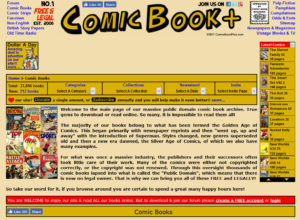 Martin Shkreli, you might know him as “pharma bro” or as “one the most punchable faces in America”, is famous for jacking up peoples meds because making an ass out of yourself is more important to him than people lives. Don’t believe me? Read the article from Harper’s Magazine which features a transcript of the jury selection for his securities fraud trial. You could not get away with writing this in a story, no one would claim it believable.
Martin Shkreli, you might know him as “pharma bro” or as “one the most punchable faces in America”, is famous for jacking up peoples meds because making an ass out of yourself is more important to him than people lives. Don’t believe me? Read the article from Harper’s Magazine which features a transcript of the jury selection for his securities fraud trial. You could not get away with writing this in a story, no one would claim it believable.
Think
Opinion pieces offering commentary on various aspects of book culture, publishing and self-publishing.
Quick Link: Stupid Advice I Have Taken about Writing
Quick links, bringing you great articles on writing from all over the web.
That’s the danger of reading advice on the web, you have to be careful about the quality. Even really good writers can give conflicting suggestions. But there are some words of wisdom that you would have been better off never reading. At Writer UnBoxed, author Louie Cronin shares some of rules he wishes he never followed.
~ * ~
Stupid Advice I Have Taken about Writing
by Louie Cronin
 When I was 31, I retired from a “good” job as an audio engineer at ABC in San Francisco to write a novel. (“Good” for an engineer, hell for a writer.) I was the first engineer across the US to take ABC’s seemingly generous offer: one year’s salary to get lost. How could any writer turn that down? How could it take longer than a year to write a novel?
When I was 31, I retired from a “good” job as an audio engineer at ABC in San Francisco to write a novel. (“Good” for an engineer, hell for a writer.) I was the first engineer across the US to take ABC’s seemingly generous offer: one year’s salary to get lost. How could any writer turn that down? How could it take longer than a year to write a novel?
Right after I retired, I got on a plane to Boston. (The novel could wait; first I had to visit my parents.) The shaggy-haired, famous-looking, cigarillo-smoking man seated next to me asked what I did for a living. (Funny how men were so interested in my career back then.)
“I just quit my job to write a novel,” I said, beaming.
He raised an eyebrow. “Really?” Turns out he had connections in the writing world. Lucky me! I was so excited I forgot to press him for details.
“Have you written anything before?” he asked.
“In high school,” I said. “And a little in college.”
“Ever published?”
“Uh, no.”
“Do you write every day?”
Read the full post on Writer UnBoxed
Quick Link: Publishing Industry Cults, Weaponized Amazon Reviews, and Organized Cyberbullying
Quick links, bringing you great articles on writing from all over the web.
has a great post on the darker side of writing. It is worth checking out.
~ * ~
Publishing Industry Cults, Weaponized Amazon Reviews, and Organized Cyberbullying
By
 Over the years I’ve written quite a bit about the dangers of author-on-author cyberbullying.
Over the years I’ve written quite a bit about the dangers of author-on-author cyberbullying.
A few years ago, a group I called “Mean Girls-meets-Lord of the Flies” terrorized authors on Goodreads and Amazon. A lot of us left Goodreads and never went back.
The ringleaders were mostly unsuccessfully self-published authors who harassed established stars as well as newbie writers. They criticized successful authors for their “greed” in charging money for their work and gamed Goodreads for free hard-copy books, which they’d give bogus one-star “reviews,” then sell unread on ebay.
Newbie authors who didn’t know the group’s unwritten “rules” were punished with sadistic glee.
They attacked victims with swarms of one-star “reviews” on Goodreads and Amazon that contained character assassination lies, personal attacks, rape threats, and even death threats — what I call “weaponized” reviews.
Read the full post on
Do you like Classic Comic Books? Do you like Free?
This is totally legal, totally legit. Ok, so you won’t find any new Marvel or DC comics, these are all classics that are in the public domain now. But still free comics! Head on over to Comic Book Plus to check it out!
Bringing back the dead. Why site stats are important to a blog.
 Yesterday was my big brave day and I posted and the world did not blow up and I was not attacked by rabid trolls foaming at the mouth. Today is harder. Yesterday I ran up the steps and jumped off the diving board. Today I have time to ponder about what I did/doing and go “OMG what was I thinking!” along with all the other fun thoughts of self-doubt.
Yesterday was my big brave day and I posted and the world did not blow up and I was not attacked by rabid trolls foaming at the mouth. Today is harder. Yesterday I ran up the steps and jumped off the diving board. Today I have time to ponder about what I did/doing and go “OMG what was I thinking!” along with all the other fun thoughts of self-doubt.
But we shall still push forward! (Deep breath!)
You do have an author site, right? Please. You need an author site. The easiest one to set up is a WordPress site. Let me know if you are interested in learning more about this, or have any questions about WordPress sites you would like answered. I am happy to help!
All WordPress sites come with an amazing little tool called Jetpack. Actually, it is a bunch of tools provided by WordPress and a bunch of them are free. One of which is the Jetpack dashboard Site Stats. This tells you how many people are visiting and can give you a general picture of the health of your site over time.
Something that my stats are telling me is that you liked the Quick Links better than the Link Roundup posts. See how powerful you are! And I am listening because eventually, I would LOVE for this site to kind of be like a neighborhood coffee bar for writers. A place to find resources and hang out. So the quick links will be back but maybe with a link round up on Fridays. There is just too much good content out there. So how about that? And of course, I will still be trying to find my voice and write directly to you. And maybe, just maybe, you will write back to me.
Have a good day!
Paula
Quick Link: 3 Ways to Stop Self-Sabotaging Your Writing
Quick links, bringing you great articles on writing from all over the web.
Ooh, I had to bookmark this post by C.S. Lakin! She has a list of ways you might be self-sabotaging your writing and I think I won! Seriously, if you feel you are not the writer you want to be head over to Live Write Thrive and bookmark this post.
~ * ~
3 Ways to Stop Self-Sabotaging Your Writing
 by C.S. Lakin
by C.S. Lakin
I’ve perhaps saved the biggest issue for last, for, honestly, we are our own worst enemies, and I believe self-sabotage, more than anything else, keeps us from being super-productive writers.
We’ve taken a look at a lot of attitude topics and discussed ways to think positively, boost ourselves with uplifting self-talk, and use mental hacks to adjust our attitudes.
But even if you correct all your bad habits, optimize your writing time, and adjust your schedule to fit your biology, if you have a tendency to self-sabotage, all your good effort may be for naught.
So we’re going to take a look at some of the reasons and ways we self-sabotage and consider some remedies to help us thwart those destructive attitudes and behaviors.
The Long-Term Effects
Some studies have shown that self-sabotage leads to cycles of negative motivation. Meaning, the more you engage in self-sabotage, the less motivated you are to get something done. It’s a self-perpetuating cycle that will prevent you from ever being truly productive.
Each time you fail, you prove to yourself that you just can’t accomplish your task. If you sit down to write and tell yourself it’s going to suck or you’ll never get the scene written, you’ll fulfill your own prophecy. And the next time you sit down, all you have to do is pull out the proof from previous attempts to discourage you from trying again. And when you do finally push through to write, the results are pathetic, due to the pressure you are heaping on your head.
Read the full post on Live Write Thrive
Quick Link: 6 Ways You Are Destroying Your Chances of Finding Readers
Quick links, bringing you great articles on writing from all over the web.
Getting readers who hopefully love your story is the whole reason behind publishing your stories. Make sure you are not doing any of these six mistakes from at Books Go Social!
~ * ~
Quick Links: Are You a Writer or a Storyteller?
Quick links, bringing you great articles on writing from all over the web.
This is actually a really interesting post by K.M. Weiland at Helping Writer’s Become Authors. I had actually been thinking about this very subject since I am a great storyteller but my writing needs work. Check it out and see what you think. Are you more a writer or a storyteller or are you very clever and are both?
~ * ~
Are You a Writer or a Storyteller?
 “I am a writer!”
“I am a writer!”
This is one of the most important and freeing statements any of us ever makes. It’s almost a rite of passage. The moment you can look your banker/hairdresser/pastor/aunt in the eye and tell them (without mumbling) that you are writer, hear you type—well, then, congratulations, you’ve crossed an important threshold in claiming your power as an artist.
However, not to complicate your victory or anything, but what you may really be trying to tell Pastor John and Aunt Lucy is that you’re a storyteller. Or maybe you’re a storytelling writer. Or is it a writing storyteller?
Or maybe I’m just nitpicking, because aren’t they basically the same thing? Aren’t “writer” and “storyteller” pretty much interchangeable?
Yes and no.
Read the full post on Helping Writer’s Become Authors
Quick Link: Deeper Thinking About Writing Your Scenes
Quick links, bringing you great articles on writing from all over the web.
One of the reasons why I love Stephen King’s writing, besides the fact that he is amazing at story telling, is how he writes scenes. I grew up in Massachusetts and there are times when I will read one of Mr. King’s stories and the scene will be so realistic to me, I can smell it. Larry Brooks from Kill Zone shares on how to have a purposeful deeper scene that enhance your story.
~ * ~
Deeper Thinking About Writing Your Scenes
 by Larry Brooks
by Larry Brooks
Deeper than what, you might fairly ask?
Perhaps, deeper than you’re thinking about them now. Because too often, newer writers (in particular) begin writing a scene without a clear intention for that scene. As a means of discovery (finding and vetting story options), this can be viable and legit…
… but unless you rethink and recast the scene once you do understand the purpose of a particular scene – its mission, if you will – chances are that scene will become a liability.
New writers tend to forget that next step. The scene rambles, then it finds (perhaps stumbles upon) its purpose… then it’s on to the next scene.
If you have a bunch of scenes created this way, you may have tanked the whole novel on this one issue of craft alone.
Scene writing is its own core competency, separate from – yet every bit as essential as – the other primary core competencies you need to manifest: 1) a conceptually-rich premise, 2) character, 3) theme, 4) structure and 5) writing voice, including dialogue and the general nature of your narrative.
That’s six core competencies (categorically) in all.
Read the full post on Kill Zone
Quick Link: We’re In This Together: How To Help Other Authors Succeed
Quick links, bringing you great articles on writing from all over the web.
My wise old granny used to always tell me to treat others the way I wanted to be treated. Who wouldn’t want support from fellow authors! A big thank you to at Writer’s Helping Writers for this great post and suggestions on how to help each other out! PS. They are promoting Kristen Lamb’s new title The Devil’s Dance, Kristen has often written posts and given back to the writing community so please check it out! PPS. Kristen, love the new professional look!
~ * ~
We’re In This Together: How To Help Other Authors Succeed

A common query Becca and I get is, “Why do you do what you do?” It’s a fair question, because in order for us to coach writers through our books, speaking, and our One Stop for Writers site, we’ve had to temporarily put our fiction-writing on hold. Not an easy decision. But the fact is we love to see dreams realized. This is why we do it. As writers ourselves, we know the power of THIS particular dream–a book in hand, our name paired with the title, and the knowledge that readers are losing themselves in a world we’ve created.
We celebrate each time someone we know achieves this dream–and how could we not? It’s so wonderful to see all that hard work pay off! Today, we are celebrating because our friend Kristen Lamb has just released her first mystery thriller, The Devil’s Dance.
Many of you know Kristen and the giant heart she has for writers. She has such passion for those of us in this industry and gives her all every day through her blog and the relationships she builds. So when someone so authentic and genuine rounds the fiction horn, well, we can’t help but cheer especially loud!
I’ve been away the last month in Italy, but the book is on my kindle now and I can’t wait to read it. I hope you’ll check it out too. But first, let’s look more at book releases in general and talk about what we can do to help the authors we know.
Launching a Book: Behind the Scenes
When an author releases a book, it’s all smiles and excitement…on the outside. What we don’t see is the anxiety going on within: will this book find its readers? Will it become lost in the glut of fiction available? If I share my excitement too freely, will people see it as unwanted promotion?
These worries are universal among authors. And, with the saturation of promotion these days, it’s important we don’t push a book too hard ourselves. Inside, we hope others will step up and help.
(And BOOM, this is what community is about, right? Stepping up!)
So if you know an author like Kristen who is releasing a book and you want to help, here’s a few things you can do (beyond the obvious of purchasing the book).
1: Ask your local library to bring the book in. Many libraries have an online form and they often pay attention to requests. Click here to find a library near you…and why not request Kristen’s book while you’re at it? 🙂 If it is an ebook release, first encourage your author friend to make the ebook available to a service like OverDrive.
Read the full post on Writer’s Helping Writers
Quick Link: 5 Essential Pieces of Advice you Need to Hear before you Publish
Quick links, bringing you great articles on writing from all over the web.
You have done it! You have finished your story, your rewrites, maybe even gotten some feedback from friends. But before you upload that story to Amazon and click “publish” there are a few things you might want to think about. Books Go Social‘s has some great tips.
~ * ~
5 Essential Pieces of Advice you Need to Hear before you Publish

So you know you want to succeed as a writer. You have a story to tell, you think you’re good at it, and you think other people would agree! However, the will and the motivation to write aren’t enough.
There’s a lot of other things you need to take into account if you want to publish, especially if you’re doing it by yourself or with an independent publisher.
We recently asked a number of independent and self-published authors what they would do differently now they’ve had their book (or books) published, and received a deluge of information. We’ve compiled the responses together into the essential pieces of advice you’ll need:
Quick Link: Building an Author Platform with Ginger Monette
Quick links, bringing you great articles on writing from all over the web.
You did it! You finally finished your book, it is edited and ready to go. Now what? Ginger Monette from Romance University has some great tips on the next steps.
~ * ~
Building an Author Platform with Ginger Monette
 Welcome Ginger Monette who is here to show us how to build an author platform and send your book off with a bang!
Welcome Ginger Monette who is here to show us how to build an author platform and send your book off with a bang!
our manuscript is in the hands of your editor, and you’ve got the big release day circled on your calendar.
What now?
Should you start advertising? Tweeting?
It’s little early to alert the media, but there are a host of pre-launch foundations new authors need to put into place before they release their baby to the world. Let’s get right to the checklist.
-Create a new email address to use exclusively for your author correspondence. It will keep your writing correspondence separate from your emails from Aunt Sue and Old Navy and allow you to see at a glance any unopened correspondence and emails needing immediate attention.
–Create an email signature line and maybe a “one-liner” that describes in a nutshell what you write. Begin using it so your friends and associates will know you’re an author. Mine is:
Read the full post on Romance University
Quick Link: When to stop learning and start writing
Quick links, bringing you great articles on writing from all over the web.
Just a quick post from Jodi Gibson, but sometimes great things come in little packages. Jodi’s post is for all us perfectionist and procrastinator who use the excuse that we don’t know enough, or are not ready, and look at the people who are better than us and think we aren’t like them. Totally me. Time to use stop using learning as an excuse and just start writing.
~ * ~
When to stop learning and start writing
 As a writer with no formal qualifications, i.e. no tertiary degree in writing, I have looked for other ways to learn about the craft of writing.
As a writer with no formal qualifications, i.e. no tertiary degree in writing, I have looked for other ways to learn about the craft of writing.
I’ve done many short courses, read a trove of online articles and websites, and discussed everything from dialogue to point of view with fellow writers. But how much is too much? When is it time to stop learning and start trusting your own knowledge and ability?
I’m not sure if there is a definitive answer that is the same for every writer. I think the answer for each individual lies somewhere between when the penny drops and when you know it’s time. Or maybe, when you’re told it’s time.
At the wrap up of Fiona McIntosh’s masterclass, she said something to us that struck a chord with me. ‘You don’t need anymore knowledge, you just need to go and write.’
She wasn’t saying that her knowledge and wisdom is everything, she was simply saying it was time to go and put everything you know into practice.
With so much information out there on the craft of writing – books, articles, websites, courses – it can be confusing. And the worst part is, there’s a lot of conflicting information. One person will tell you one thing, and then another will tell you the opposite.
Read the full post on Jodi Gibson
Quick Link: Author Platform Building: How to Create a Valuable Email List For Your Book
Quick links, bringing you great articles on writing from all over the web.
An email list is one of your best marketing tools. Just think about it, people actually signed up for your email because they are interested in you! At Writer’s Digest, guest poster Gabriela Pereira gives some great tips on how to start your email list. Personally, I love MailChimp and have used it for many clients but they are all good. Also, adding one more tip to Gabriela’s list – you need to reassure people somehow that you will not sell or abuse their email. Unless you plan on abusing that privilege, in which case you are an awful person.
~ * ~
Author Platform Building: How to Create a Valuable Email List For Your Book
Why You Need an Email List
The Internet is always changing. From Facebook to Foursquare, Pinterest to Periscope, it sometimes seems as if a new social media platform pops up every minute. Who can keep up? The beauty of email is that it’s evergreen. While websites, forums and social networks might come and go, email has solidified its place in how we communicate.
Email is a direct line between you and your readers. There’s no “middleman” to get in the way. In a digital world where social networks change their algorithms, sites get hacked and servers crash, direct communication is invaluable. You can export that list and take it with you wherever you go. As long as you build that list correctly, it’s yours and no one can take it away from you.
Read the full post on Writer’s Digest
Quick Link: How to Write a (Romance) Blurb by Rosalind James
Quick links, bringing you great articles on writing from all over the web.
Your book blurb is one of the best tools you have in marketing your book. You have gotten the potential reader interested enough to come look a little more at your title. This is where you can make a big impact on sales. While Rosalind James is writing specifically about Romance blurbs, the tips she provides at Romance University works for everyone. Also, as someone that prepares an ebook newsletter please please please start your blurb with a two to three sentence paragraph the captures the essence of your book. Then go deeper. Not only are you helping people like me who want to present your book in the best light possible, but you also give a good description for people who like your story to tell their friends. It puts you in control of your marketing message!
~ * ~
How to Write a (Romance) Blurb by Rosalind James
by Rosalind James
Welcome Rosalind James in her first blog post for RU – and it’s a doozy! =)
 As some folks know, I spent my misguided youth—all right, all right, my misguided middle age—as a copywriter. Which means that writing blurbs for my books was a piece of cake, right?
As some folks know, I spent my misguided youth—all right, all right, my misguided middle age—as a copywriter. Which means that writing blurbs for my books was a piece of cake, right?
Wrong. I had to learn how to do it, because writing one type of copy isn’t the same as writing another. But maybe it was a little easier and less scary to learn. So, OK, here are my tips for Writing Your Kickass Romance Blurb.
Look at other blurbs. (You thought this was going to be some technical post, huh?) I learned to do it by going to the library and pulling down books in my genre from the paperback rack. Somehow, it was much easier to spot trends and pick out blurbs I liked from physical books. I read and took notes for an hour. I noticed what I hated as well as what I liked. Which blurbs made ME want to read the book? Because I write the kinds of books that I like to read. After I did my research, I came home, and . . .
Read the full post on Romance University


 You’re a writer. You want to find readers. Traditional publishers are paying less and less, and they are taking fewer books these days.
You’re a writer. You want to find readers. Traditional publishers are paying less and less, and they are taking fewer books these days. By Gabriela Pereira
By Gabriela Pereira